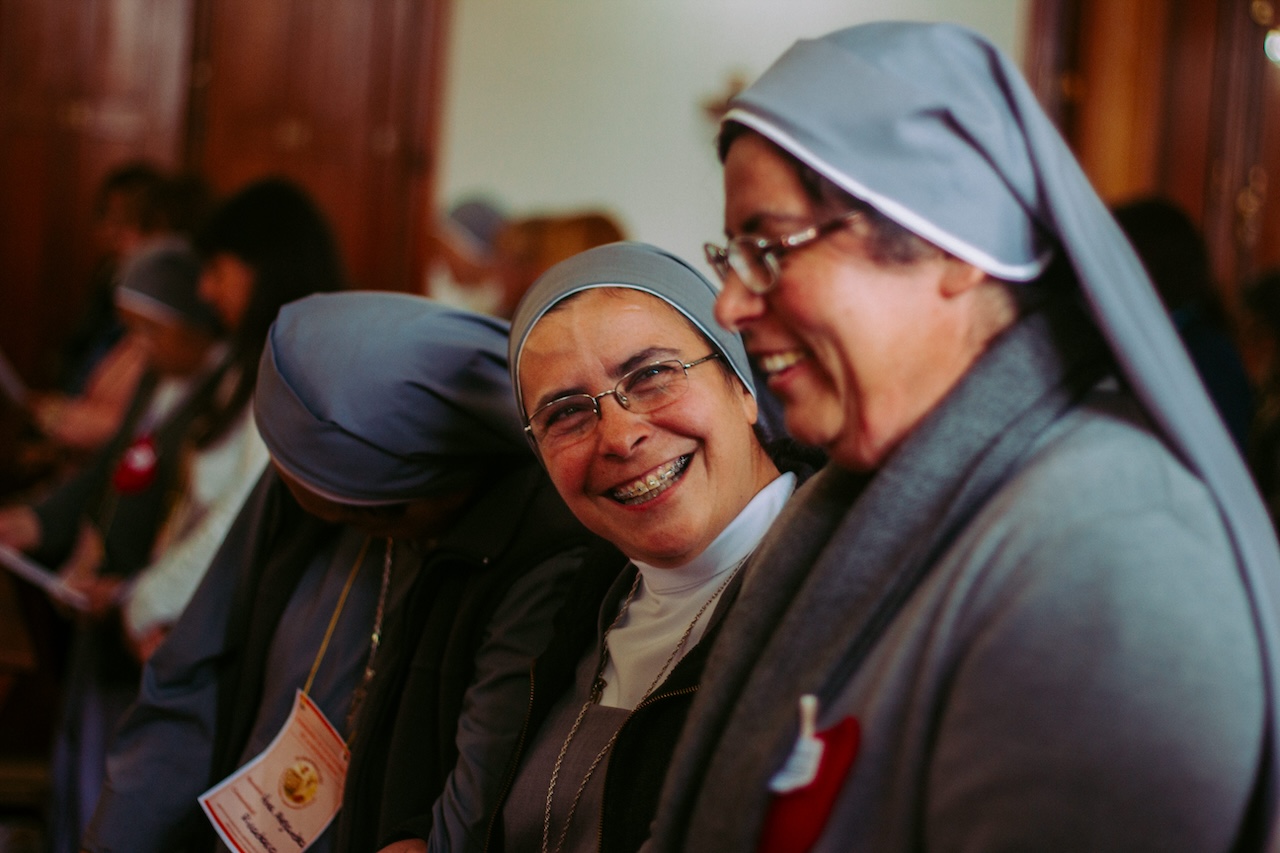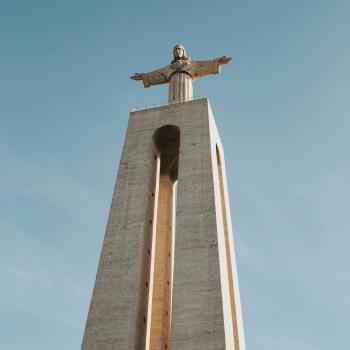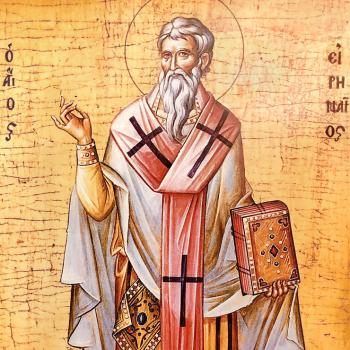When I was studying in Rome, each year all the religious (sisters, brothers, and priests) and consecrated persons would gather with the Holy Father for a special mass or vespers around the Feast of the Presentation of the Lord. Since 1997, Pope John Paul II had made this feast on February 2 a day dedicated to consecrated life, noting a parallel between the total self-giving of Jesus and the consecration lived out through the profession of the evangelical counsels of poverty, chastity, and obedience. In this article, I explore why the Church asks us to pray for vocations of both men and women to religious life.
Pope John Paul II and Religious Life
On the feast of the Presentation during my second year in Rome, I remember that Pope John Paul II was too physically ill to preside at the celebration of the mass. One of the cardinals presided the mass in his stead, but Pope John Paul II was still present, on a little platform they had built for him close to the altar in the Basilica of St. Peter’s. Although I was enthusiastic about living the mass, I could not help but be somewhat distracted by the presence of the ailing pontiff; his body was racked with pain and stiffness. Nevertheless, when the mass came to the moment of consecration, he knelt reverently with the help of his aides. I was stunned by his tremendous testimony of faith. I think it will always be my strongest memory of the World Day of Consecrated Life.
Although he himself was not a religious, Pope John Paul II seemed to always understand religious and consecrated life deeply. His post-synodal exhortation Vita Consecrata is a gem of Catholic teaching about religious life and a standard text for young men and women beginning their journeys of religious life. He writes in the opening paragraph that:
The Consecrated Life, deeply rooted in the example and teaching of Christ the Lord, is a gift of God the Father to his Church through the Holy Spirit. By the profession of the evangelical counsels the characteristic features of Jesus — the chaste, poor and obedient one — are made constantly “visible” in the midst of the world and the eyes of the faithful are directed towards the mystery of the Kingdom of God already at work in history, even as it awaits its full realization in heaven. (Pope John Paul II, Vita Consecrata, 1)

Presentation of the Lord and Religious Life
The symbolism of the Presentation of the Lord matches up well with the reality of religious life since there is a sense of self-offering and holocaust. Sacrifice is something present universally in religion. The Greeks thought they were smart because they had tricked the gods into taking only the bones and unusable parts of the animal, as recounted by Hesiod regarding Prometheus and his deception of Zeus (cf. “Prometheus and the Sacrificial Share”). Within the Judaic religion however, there would be different types of sacrifices but the highest was always the holocaust, consuming the victim entirely as a sign of total devotion to God.
When Joseph and Mary presented Jesus to Simeon in the Temple, their action foreshadowed his later holocaust that would be completed through his sacrifice on the cross at Calvary. By entering the Temple, Jesus brought to fulfillment its true purpose: to be a dwelling place for the Most High. The Most High who, in a demonstration of poverty, arrived in the form of an infant child.
Rise and Purpose of Religious Life
Historically speaking, religious life did not appear until the end of the age of grave religious persecution and martyrs which lasted for a few centuries after the time of Christ. Despite this, its roots are set firmly in the life of Jesus. It is essential to religious life to imitate Christ through the living of the evangelical counsels of poverty, chastity, and obedience. Religious life is intertwined inextricably with the life of Christ.
Religious Life is about “Being” before “Doing”
So often, when we speak of the merits of religious life, we focus on good works of service that religious accomplish; i.e. what they “do.” However, we would be completely missing the point if we do not recognize religious for who they “are.” ‘Being’ precedes ‘doing,’ and this is particularly important for understanding religious identity. Religious men and women are called to make present in the world the evangelical counsels of poverty, chastity, and obedienceand thus recalling to Christians’ minds the ideal of holiness they commit to through their own baptismal promises.
Eschatological Dimension of Religious Life
Religious life has an eschatological dimension as well (“Eschatology” refers to the theological study of the last things: death, judgment, heaven, and hell). To a certain point, religious life forms “heaven on earth,” living for God and his kingdom rather than for material gain in a secular world. Even if oftentimes the lived-out experience does not seem heavenly, the basic structure of religious life seeks to underline the eternal aspects of human life that we all share.
Material things are important during this life, but they pale in comparison with the rewards God gives for trust in his Providence, made visible through the vow of poverty. Love is real, even if it is not based on a romantic relationship, as shown by the vow of chastity. Doing things selfishly and self-centeredly is not the source of every happiness and contentment, as demonstrated by the renunciation of one’s own lived out through obedience. Together, these three vows give a sense of what it means to follow Christ.
Not Just about Personnel
Too often, it seems that calls for prayer for vocations come from a place of calculating personnel needs. “We need more priests because parishes are no longer able to cover all masses and confession times. We need more religious sisters, because life was better when we had a sister in every classroom at Catholic schools.” These arguments may point to valid concerns, but they miss the point. It is much more engaging to recognize that praying for vocations should fundamentally be praying that each person finds meaning in the life to which God is calling him or her. If this calling happens to be to religious life, it is a call to complete self-giving, as symbolized by the Presentation of Jesus in the Temple.
Prayer for religious vocations should come from love for the Church and love for the individual, and not as a calculation of personnel needs. Rather than resorting to scare tactics to promote prayer for religious vocations, we should strive to deepen our sense of mission and love for the Church, which will naturally result in an increased desire to pray insistently for an increase of religious vocations, to increase the sign of God’s presence and action in the world.
Subscribe to the newsletter to never miss an article.














